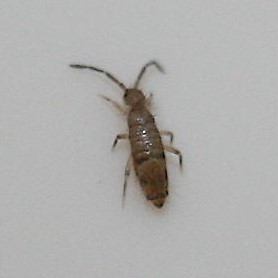
Convolvulaceae, commonly called the bindweeds or morning glories, is a family of about 60 genera and more than 1,650 species. These species are primarily herbaceous vines, but also include trees, shrubs and herbs. The tubers of several species are edible, the best known of which is the sweet potato.

Plantaginaceae, the plantain family, is a large, diverse family of flowering plants in the order Lamiales that includes common flowers such as snapdragon and foxglove. It is unrelated to the banana-like fruit also called "plantain." In older classifications, Plantaginaceae was the only family of the order Plantaginales, but numerous phylogenetic studies, summarized by the Angiosperm Phylogeny Group, have demonstrated that this taxon should be included within Lamiales.

Nicolia is a genus of fossilized wood from the Late Cretaceous to Pleistocene of Belgium, Ethiopia, Egypt, New Caledonia, New Zealand, and Tunisia. The type species is N. aegyptiaca.

Nyctaginaceae, the four o'clock family, is a family of around 33 genera and 290 species of flowering plants, widely distributed in tropical and subtropical regions, with a few representatives in temperate regions. The family has a distinctive fruit type called an accessory fruit or anthocarp, and many genera have extremely large pollen grains.

A gribble /ˈgɹɪbəl/ is any of about 56 species of marine isopod from the family Limnoriidae. They are mostly pale white and small crustaceans, although Limnoria stephenseni from subantarctic waters can reach 10 mm (0.4 in).

Entomobryidae, sometimes called "slender springtails", is a family of springtails characterised by having an enlarged fourth abdominal segment and a well-developed furcula. Species in this family may be heavily scaled and can be very colourful. The scale-less Entomobryidae are commonly caught in pitfall traps around the planet, and also occur in canopy faunas high up in trees. There are more than 1700 described species in Entomobryidae.

iNaturalist is an American 501(c)(3) nonprofit social network of naturalists, citizen scientists, and biologists built on the concept of mapping and sharing observations of biodiversity across the globe. iNaturalist may be accessed via its website or from its mobile applications. iNaturalist includes an automated species identification tool, and users further assist each other in identifying organisms from photographs and even sound recordings. As of 9 July 2024, iNaturalist users had contributed approximately 197,660,888 observations of plants, animals, fungi, and other organisms worldwide, and 290,007 users were active in the previous 30 days.

Limnoria lignorum, commonly known as the gribble, is a species of isopod in the family Limnoriidae. It is found in shallow water in the North Atlantic and North Pacific Ocean where it tunnels into wood and attacks and destroys submerged wooden structures.
Penicillium lignorum is an anamorph species of the genus of Penicillium.
Pleocola limnoriae is a species of tardigrades. It is the only species of the genus Pleocola, which belongs to the family Styraconyxidae. The species and genus were named by Alexandre Cantacuzène in 1951. It has been found in the North Atlantic Ocean, type locality Roscoff, Brittany, France. It was discovered living in commensalism on the isopod Limnoria lignorum.
Lepidocyrtus cinereus is a species of slender springtail in the family Entomobryidae.
Lepidocyrtus neofasciatus is a species of slender springtail in the family Entomobryidae.

Lepidocyrtus cyaneus is a species of slender springtail in the family Entomobryidae. It is found in Europe.
Chrysotoxum chinook is a species of syrphid fly in the family Syrphidae.

Lepidocyrtus curvicollis is a species of slender springtail in the family Entomobryidae. It is found in Europe.
Lepidocyrtus floridensis is a species of slender springtail in the family Entomobryidae.

Lepidocyrtus paradoxus is a species of slender springtail in the family Entomobryidae. It is found in Europe.
Animal Ethics is a nonprofit organization formed to promote discussion and debate around issues in animal ethics and to provide information and resources for animal advocates. They also do outreach work in several countries on the issue of speciesism. Their aim is to create a world where moral consideration is extended to all sentient beings. The organization's website covers topics such as speciesism, sentience, veganism and wild animal suffering and has content translated into several languages.

Navenakhevi Cave Natural Monument is a karst cave near village Navenakhevi in Terjola Municipality in Imereti region of Western Georgia, 235 m above sea level. In 2017 cave was refurbished to be used as a tourist attraction.

Nazodelavo Cave Natural Monument is a karst cave 6.8 km to the north from village Akhuti in Chkhorotsqu Municipality in Samegrelo-Zemo Svaneti region of Georgia. Cave is located on the left bank of river Zana, 290 meters above sea level. Nazodelavo means the dwelling of Zodelavos. According to cave narratives, it was used as a means of defense in the middle ages.













